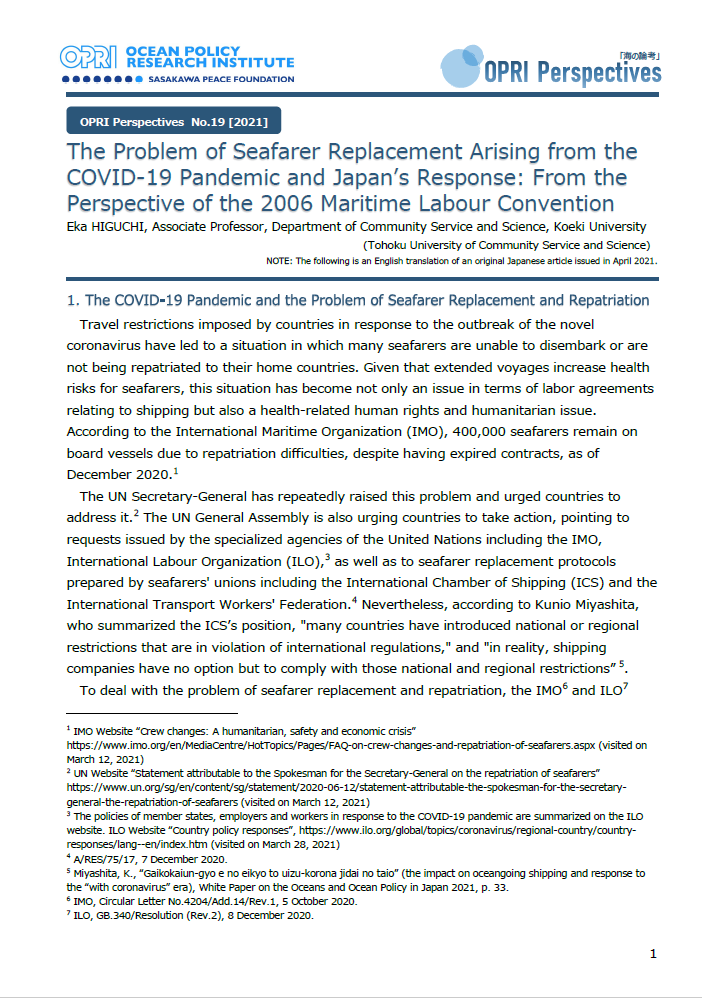Publications
The Problem of Seafarer Replacement Arising from the COVID-19 Pandemic and Japan’s Response: From the Perspective of the 2006 Maritime Labour Convention
Eka HIGUCHI
"OPRI Perspectives" is a series of discussion articles written by current or previous OPRI researchers.
Please click here for the PDF file download
Please click here for the PDF file download
